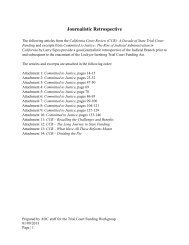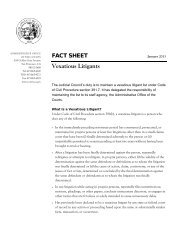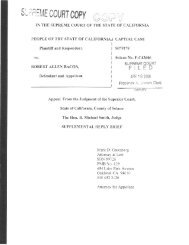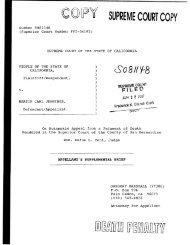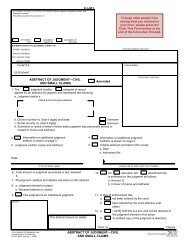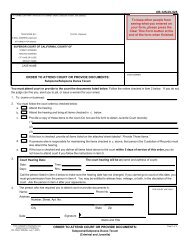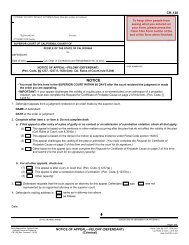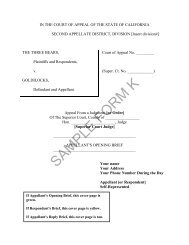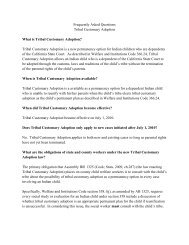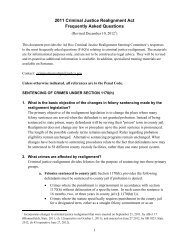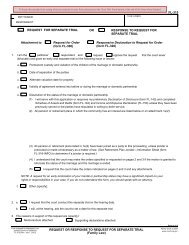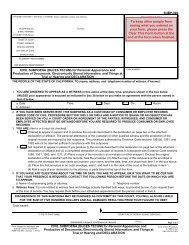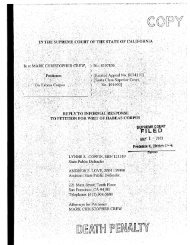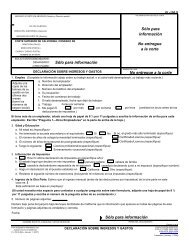Appellant, William Satele, Reply Brief - California Courts - State of ...
Appellant, William Satele, Reply Brief - California Courts - State of ...
Appellant, William Satele, Reply Brief - California Courts - State of ...
Create successful ePaper yourself
Turn your PDF publications into a flip-book with our unique Google optimized e-Paper software.
Cal.App.3d 970, 992.) Instead, respondent simply recites evidence pertaining to<br />
gang customs and culture and the defendants' gang membership and to Ernie<br />
Vasquez's highly improbable testimony that both appellant and Nunez<br />
individually divulged their guilt to him during his single jailhouse contact with<br />
each <strong>of</strong> them. (RB at pp. 172-174.) Respondent falls far short <strong>of</strong> carrying the<br />
burden <strong>of</strong>showing the instructional error was harmless beyond a reasonable doubt.<br />
(Chapman v. <strong>California</strong>, supra, 386 U.S. at p. 24.)<br />
Moreover, the jury's rejection <strong>of</strong> the prosecution's motive theory - that<br />
appellant and Nunez shot and killed two African-Americans because <strong>of</strong> their race<br />
for gang purposes, as appellant has discussed above and in the opening brief <br />
demonstrates that but for the instructional error it is "reasonably probable" the trier<br />
<strong>of</strong> fact would have reached a result more favorable to the defendant. (People v.<br />
Watson, supra, 46 Ca1.2d 818, 836.) For these reasons, appellant respectfully<br />
submits, reversal <strong>of</strong>the gang benefit enhancement is warranted.<br />
E. The Consequences Of The Instructional Error Reached Beyond The Gang<br />
Benefit Enhancement<br />
1. <strong>Appellant</strong>s Did Not Forfeit Their Fifth, Sixth, Eighth, And Fourteenth<br />
Amendment Claims<br />
<strong>Appellant</strong> contended the instructional error complained <strong>of</strong>here violated his<br />
Fifth and Fourteenth Amendment right to due process <strong>of</strong> law, as well as the Sixth<br />
Amendment notice and jury trial guarantees that any fact, other than a prior<br />
conviction, that increases the maximum penalty for a crime must be charged in a<br />
pleading, submitted to a jury, and proven beyond a reasonable doubt. (Blakely v.<br />
Washington (2004) 542 U.S. 296; Apprendi v. New Jersey (2000) 530 U.S. 466;<br />
In re Winship (1970) 397 U.S. 358, 364.) Because a sentence enhancement<br />
requires findings <strong>of</strong>fact that increase the maximum penalty for a crime, the United<br />
<strong>State</strong>s Supreme Court has held that the Apprendi rule applies specifically to<br />
47



